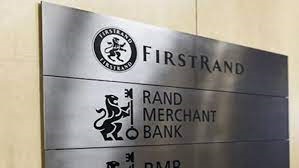The International Finance Corporation (IFC) today announced a loan to FirstRand Bank, which will support businesses in the agriculture, services, trade, construction, hospitality, and other sectors in South Africa.
The deal is aimed to facilitate increased access to financing for small and medium-sized enterprises (SMEs) in South Africa, including women-owned businesses. IFC’s $150 million loan will enable FirstRand Bank to increase lending to SMEs with loan sizes between $10,000 and $2 million equivalent in South African rand, helping these businesses sustainably scale, expand into new markets, and sustain and create jobs. FirstRand will allocate 25 percent of IFC’s loan to support women-owned businesses.
Although South Africa has a developed financial system, smaller businesses in the country can still struggle to access financing, limiting their growth. IFC’s partnership with FirstRand Bank will help the bank increase its already wide-ranging support for South Africa’s smaller businesses and entrepreneurs.
“South African SMEs have been hard hit by events beyond their control over the past few years, such as the pandemic, and the floods in KwaZulu-Natal. SMEs were particularly affected as they do not have significant capital reserves and other buffers to weather stress events. This transaction will provide FirstRand Bank with valuable additional capacity to provide small businesses with innovative funding solutions to support growth,” said Andries du Toit, FirstRand’s Group Treasurer.
“SMEs are key to job creation and the delivery of essential goods and services,” said Adamou Labara, IFC’s Country Manager for South Africa. “IFC’s investment in FirstRand Bank, a longstanding partner, will support the resilience of SMEs in South Africa, helping them grow and become more sustainable, including through ongoing global economic challenges.”
IFC’s loan to FirstRand Bank is aligned with the institution’s country strategy for South Africa, which includes a focus on financing SMEs, including women-owned businesses, with the goals of promoting job creation and reducing poverty and inequality.
IFC has an investment portfolio of about $3.1 billion across 45 clients in South Africa, and an active advisory portfolio of $25.8 million across 15 clients. IFC supports the private sector in South Africa through focus areas such as empowering small businesses and entrepreneurs, promoting financial inclusion, and contributing to the country’s transition towards a greener economy.
IFC — a member of the World Bank Group — is the largest global development institution focused on the private sector in emerging markets. We work in more than 100 countries, using our capital, expertise, and influence to create markets and opportunities in developing countries.
In fiscal year 2023, IFC committed a record $43.7 billion to private companies and financial institutions in developing countries, leveraging the power of the private sector to end extreme poverty and boost shared prosperity as economies grapple with the impacts of global compounding crises.
FirstRand Bank Limited (FRB or the bank) is a wholly owned subsidiary of FirstRand Limited (FirstRand or the group), which is listed on the Johannesburg Stock Exchange (JSE) and Namibian Stock Exchange (NSX). The bank provides a comprehensive range of retail, commercial, corporate and investment banking services in South Africa and offers niche products in certain international markets. The bank has three major divisions which are separately branded: First National Bank (FNB), WesBank and Rand Merchant Bank (RMB).
IFC — a member of the World Bank Group — is the largest global development institution focused on the private sector in emerging markets. We work in more than 100 countries, using our capital, expertise, and influence to create markets and opportunities in developing countries.
In fiscal year 2023, IFC committed a record $43.7 billion to private companies and financial institutions in developing countries, leveraging the power of the private sector to end extreme poverty and boost shared prosperity as economies grapple with the impacts of global compounding crises.

